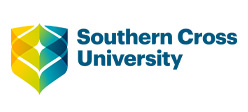At a glance
If you’ve ever harboured aspirations to join the C-suite, your accounting background is a golden ticket of sorts. According to research from specialist recruiter Robert Half, 47 per cent of Australia’s current ASX 200 chief executive officers (CEOs) have held prior roles in finance, financial services or accounting – a trend that’s mirrored in the UK, where almost one in four CEOs are qualified accountants.
Leaders with strong financial capabilities can deliver obvious benefits to a business, says Robert Half Australia director, Andrew Brushfield. “It’s very handy for people running organisations to be financially literate,” he says.
“At the end of the day, it’s a numbers game: you need to know that more money is coming in than going out and where that money is coming from.”
What makes accountants a good fit?
While a head for numbers is a definite advantage for business leaders, there are numerous other skills that accountants bring to the C-suite – chief among them the ability to provide insights from a financially strategic viewpoint.
“Being able to translate an idea into a financial impact that would help the bottom line of a business is incredibly important,” says Brushfield.
“If you think of CEOs from the ASX 200, they are being quizzed and questioned by investors left, right and centre, so being able to explain decisions that are made and the impact they have on the profitability of the business is vital.”
A willingness to embrace disruption is also essential – something that accountants are all too familiar with, says Brushfield, who explains that companies are increasingly looking for CEOs with the digital skills and innovative vision that will help them navigate the ever-changing business landscape.
“What we're finding is that CEOs are now super tech savvy and up to speed with disruptions to the industry as they relate to technology initiatives,” he says. “They have to be, or they risk being left behind.”
What does it take to join the C-suite?
Unsurprisingly, the transition from back office to corner office doesn’t happen overnight – or without significant effort and experience. A financial background alone won’t get you there: a 2018 study found that, while many senior executives may have started their careers in accounting or finance, they often branched out into operational positions on their way to becoming CEO – with almost half gaining experience in the C-suite as chief financial officer (CFO) or chief operating officer (COO) first.
For example, Fortune 500 CEOs David Wichmann of UnitedHealth Group and Randall Stephenson of AT&T leveraged their accounting expertise to take on a series of leadership positions en route to the top (including CFO at their respective companies).
Closer to home, Sigma Healthcare’s CEO, Mark Hooper CPA, gained a broad range of experience in finance, commercial and operational matters before taking on his current role.
Education can significantly aid career progression as well, with 82 per cent of ASX 200 CEOs holding at least an undergraduate degree and a further 56 per cent a postgraduate qualification. Almost a quarter have completed an MBA, which is particularly beneficial for C-suite candidates seeking networking opportunities, as well as insight into commercial scenarios.
Finding a professional mentor and gaining international experience can also help steer you to the upper echelons of the workforce, but Brushfield believes the key area aspiring CEOs need to address is strategic thought.
“Typically, organisations are looking for a CEO with strong commercial exposure. If you feel a lot of your work has been solely finance or accounting based, you need to gain exposure to the strategic workings of the business – familiarising yourself with sales, operations, engineering and client-facing services – so that you're understanding the business in its entirety.”
Furthermore, you must possess the intangible skill set crucial to C-suite positions: a long list of qualities such as decisiveness, adaptability, good communication skills, self-awareness and the ability to encourage and inspire a team.
As Brushfield says: “You don't get the big gig unless you've got those soft skills in spades.”
Find out how an online MBA with a specialisation in Accounting from Southern Cross University can help you develop the network and skills you’ll need to join the C-suite.


